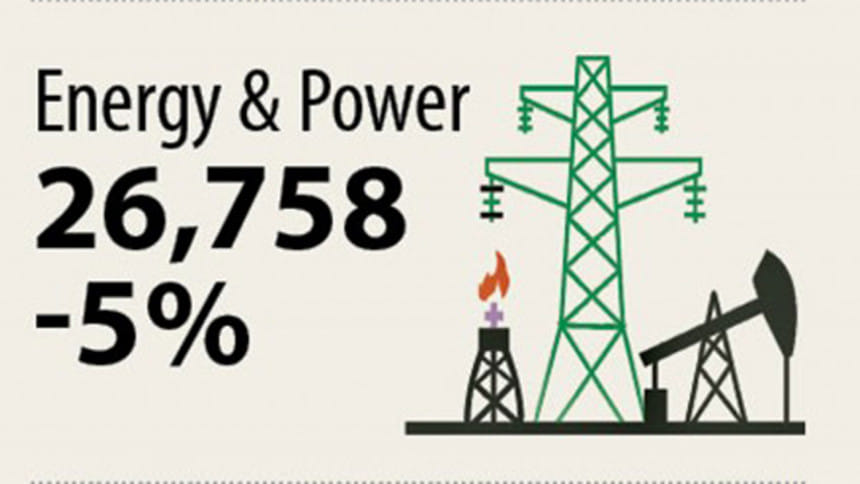Poor power demand, poor allocation

In the wake of a demand crunch for electricity and gas due to the pandemic, the government has cut the spending on power and energy for fiscal 2020-21 as it has allocated Tk 26,758 crore for these sectors -- 4.6 percent down year on year.
Finance Minister AHM Mustafa Kamal in his budget speech yesterday said Tk 24,853 crore would be allocated for the power sector while the energy sector would receive Tk 1,905 crore.
The total allocation for power and energy in the current fiscal year is Tk 28,051 crore.
The country currently has a power generation capacity of 24,000 megawatts, which is enough to bring the entire population under electricity coverage. But the government cannot utilise its generation capacity to the fullest due to the weak transmission and distribution systems.
"More importance would be given to improve the transmission and distribution systems," Nasrul Hamid, state minister for power and energy, told journalists on Wednesday, adding that the government were hoping to bring all households under electricity coverage by March next year.
Currently, about 96 percent of the population have access to electricity, up from 47 percent a decade ago.
"The government should prioritise on expenditure, cut subsidies, focus on transmission and distribution network, and provide some immediate benefit to the economy through a cut in the fuel prices," said Zahid Hussain, former lead economist at the World Bank in Dhaka.
It would help the government get rid of the capacity charges, what he sees no reason to continue as the country had an excess power generation in FY 2018-19 by using only 43 percent of its capacity.
Even before the pandemic, the government used to pay Tk 9,000 crore as capacity charges to the rental power plants that remained idle due to the low demand of electricity, causing a hike of electricity price for consumers, said Ohio-based Institute for Energy Economics and Financial Analysis in a study recently.
The demand for power has fallen further following the outbreak, but the subsidy allocations for power and energy sectors -- Tk 9,500 crore and Tk 9,000 crore respectively -- remained unchanged in the proposed budget.
Another way to get rid of the rental power plants is not to renew the contracts that would be up for renewal in the upcoming fiscal year, Zahid said.
"The government should explore ways to make savings from the subsidies without raising electricity prices. Any power price increase would hurt everybody, from the middle class to businesses and industries to households."
The gas sector has not been able to match the success of the power sector, largely because of fast-depleting domestic reserves and a lack of major discoveries.
The situation has prompted the government to shift its focus on liquefied natural gas (LNG).
Bangladesh now produces 3,051 million cubic feet of gas per day (mmcfd), which was 1,744 mmcfd in 2009.
A major portion of the development expenditure planned for the power sector would involve import. But spending foreign currencies in this way is not consistent with the current situation, said Prof M Shamsul Alam, energy adviser of the Consumers Association Bangladesh.
To meet the budget deficit, the government increased the subsidies and electricity tariff in the past, said Prof Shamsul.
"In the past, we were able to absorb the additional burden because we had the financial capability. Now, we neither have the capacity to pay taxes nor the bills for using gas and electricity."
At least Tk 10,000 crore can be saved in the power sector and Tk 12,000 crore in the gas sector by keeping a tight rein on unnecessary expenditures, he said.

 For all latest news, follow The Daily Star's Google News channel.
For all latest news, follow The Daily Star's Google News channel. 



Comments